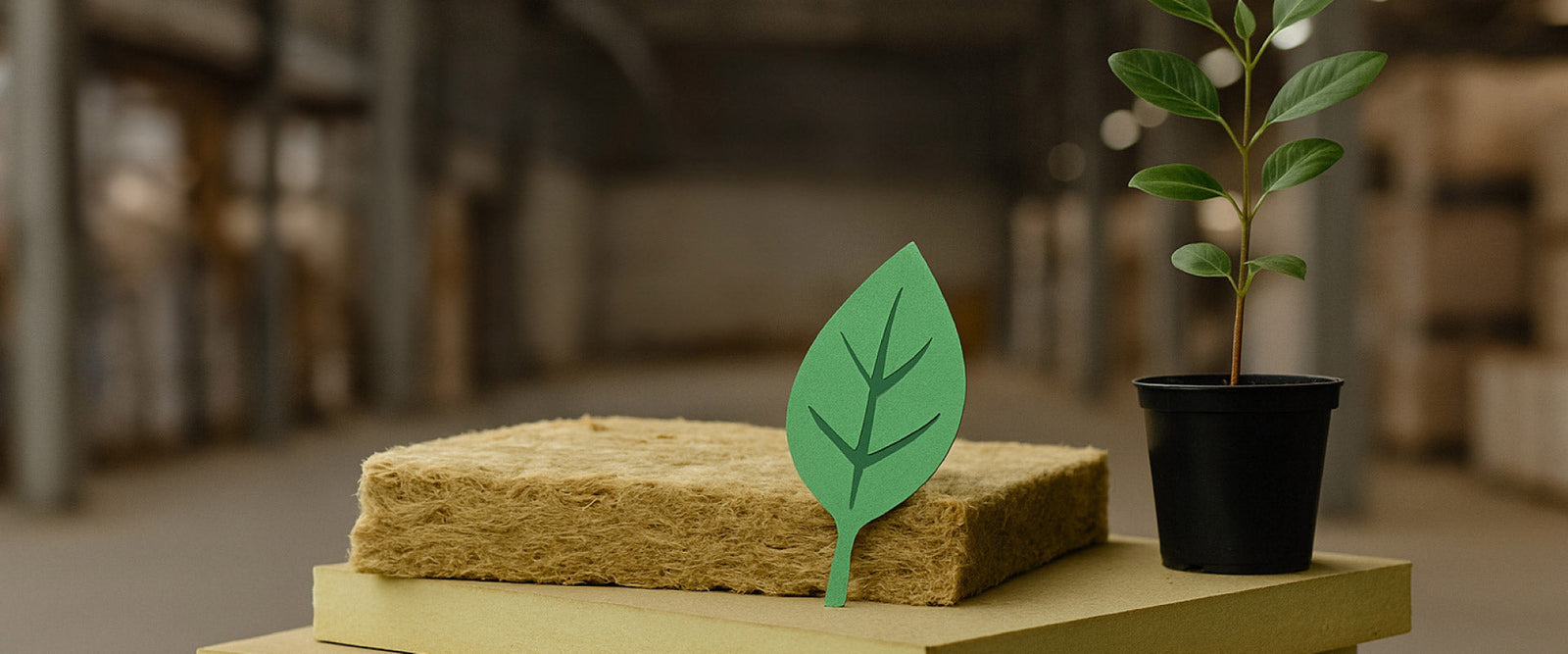Why choose greener insulation?
With energy costs rising and sustainability front of mind, many UK homeowners are looking for insulation that reduces heat loss while limiting environmental impact. Eco-friendly choices help cut energy use, lower bills, and support healthier homes. This guide explains how widely used options such as Mineral Wool and Celotex PIR boards can be specified and installed with the environment in mind.
What makes insulation “eco-friendly”?
- Responsible materials made from renewable, abundant, or recycled content
- Lower embodied impact through efficient manufacturing and minimal waste
- End-of-life options such as re-use or specialist recycling routes
- Healthy living with materials that are safe to handle and support good indoor air quality
- Long service life so performance is maintained for decades
Eco-friendly insulation choices
Mineral Wool
Made from natural rock with recycled content, Mineral Wool is a strong all-round choice for lofts, stud walls, and pitched roofs. It provides robust thermal and acoustic performance, is non-combustible, and is resilient over time. Many manufacturers run take-back or recycling schemes which supports circular use.
Celotex PIR Boards
PIR (polyisocyanurate) boards are valued for high thermal performance per mm. That allows you to meet target U-values where space is tight such as rafters, dormers, and room-in-roof build-ups. Although PIR is derived from petrochemicals, its long lifespan and the operational energy it saves can offset a share of the manufacturing impact. Re-use and specialist recycling options are increasingly available.
Performance perspective (quick compare)
- Thermal efficiency: PIR boards typically achieve lower U-values at reduced thickness, while Mineral Wool delivers excellent performance where depth allows.
- Sustainability profile: Mineral Wool scores highly on recycled content and non-combustibility. PIR boards offer strong in-use savings thanks to thinner build-ups that still meet standards.
- Use cases: Mineral Wool suits between-and-over-joist loft layers and stud cavities. PIR excels at rafters, sloping ceilings, and shallow spaces.
Environmental and cost benefits
Switching to effective insulation reduces the energy needed to heat a home which cuts emissions and bills. Actual savings vary by property type, current insulation levels, and fuel costs. As a rough guide, many UK homes see annual bill reductions in the low-to-mid hundreds of pounds after upgrading lofts or roof build-ups. PIR can deliver comparable or higher savings in tight spaces because it reaches target performance with less depth.
Installation and upkeep
- Professional design and fitting for Mineral Wool and PIR boards helps you achieve the intended U-values and avoid thermal bridges
- Maintain ventilation paths and use compatible vapour control layers where specified
- Inspect periodically for moisture issues or disturbance so performance is maintained
Ready to improve your home’s sustainability?
Explore our curated range to boost efficiency with confidence:
- Mineral Wool insulation for lofts and cavities
- High-performance Celotex PIR boards for rafters and shallow build-ups
Make an informed choice today and enjoy lasting comfort, lower bills, and a greener home.
Conclusion
Choosing sustainable insulation such as Mineral Wool or Celotex PIR boards brings together lower energy use, improved comfort, and a reduced environmental footprint. Specify the right product for the build-up, fit it correctly, and you will support both your household budget and the planet.


